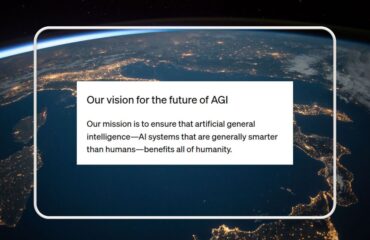
Image by Daniel Bruyland of Pixabay
What would happen if the cost of quantum computing hardware were to decrease significantly and suddenly? Like many other technologies that have become relatively inexpensive in recent history – think of powerful computers now in the mobile phones now held by the majority of people worldwide – quantum computing and its applications would begin a rapid worldwide expansion.
How ready are we for a technological breakthrough, and what that would entail for businesses and other users?
It is widely believed that widespread and practical use of quantum computing will require at least another decade for development, but recent claims of the discovery of superconductive materials have given cause to re-think the long time horizon.
The search for superconductivity at room-temperature and regular pressure has long been an elusive goal for quantum computing. Superconductivity allows electrical signals to transmit with zero resistance and therefore with high speed and accuracy, a requirement for quantum circuitry. Generally only achieved at extremely low temperatures nearing absolute zero, or at very high pressure, the limitations have made the development and maintenance of quantum computing hardware prohibitively expensive and have delayed the widespread introduction of the technology.
While there is much scepticism about recent claims of lower-pressure, room-temperature superconductivity, one by a University of Rochester physicist and another by researchers in South Korea, it may only be a short time that materials science produces an inexpensive means of building a quantum computer. What will happen then?
Fortunately there are now groups working to introduce the technology to future users and train them for possible applications. It’s not an easy task, given both the absence of a wide range of tested algorithms and the complexity of quantum computers, which are very different from the binary or “classical” computers most of us now use. We’ll provide two examples here.
The mission of Digital Catapult is to advance industrial adoption of advanced digital technologies throughout the U.K., including 5G networking, AI and machine learning, blockchain, virtual reality, and Internet of Things. Its Quantum Technology Access Programme offers U.K. businesses 20 weeks of access to development of relevant quantum computing use cases, with support and expertise from industry experts, access to quantum computing hardware and software, and partnership networking opportunities.
The Quantum Technology Access Programme, which is offered at no cost to participants, opened June 27 and applications close on August 11. It is part of a wider project funded by Innovate UK Industry Strategy Challenge Fund, called Quantum Data Centre of the Future, that Digital Catapult is running with industry partners ORCA Computing, Riverlane, BT, KETS and PQ Shield.
Its aim is to support users, including management, scientists, and data experts, who are seeking to develop quantum algorithms. Participants are expected to commit 8-10 hours weekly to the programme, of which approximately half will consist of contact with quantum technologists and experts. It is targeting a range of industries, including manufacturing, energy, media and entertainment, pharmaceutical, telecoms, and transportation.
We’re interested about to hear about other helpful organizations like Digital Catapult, whether of national or global scope, with a mission to familiarize a wide audience with emerging technology.
Based in Washington, D.C., Womanium is a public service non-profit organization whose mission is “to encourage and empower young girls and women in science, technology, mathematics, engineering, education and enterprise.” The organization offers scholarships, and in July 2023 sponsored a month-long quantum computing program that introduced participants to the technology and a range of industry experts.
The Womanium quantum computing program was open to all, and its topics included quantum sensing, quantum applications, quantum lab tours, and information for entrepreneurs, startups, careers, and internships. The sessions were offered free of charge, and included more than 50 speakers and instructors and over 40 panels and sessions.
The organizers report that there were over 2,000 actively engaged participants from more than 100 countries. The full Womanium quantum computing 2023 program is now available online.
Adapting Technology to Human Needs
Why do we pursue technologies like quantum computing, among all the other choices we could make? What is our technological mindset?
The Quantum Record previously featured our fundamental choices in technology: will it be prescriptive and require us to adapt to it, or will it be holistic and adapt to us? By bringing technological knowledge to the users, programs offered by Womanium and Digital Catapult, and many others like them, give a hand to as many of us as possible, and a chance to imagine the holistic potential of a technology as powerful as quantum computing.



